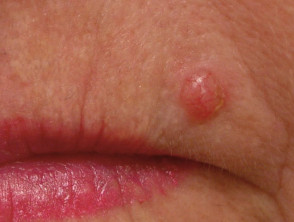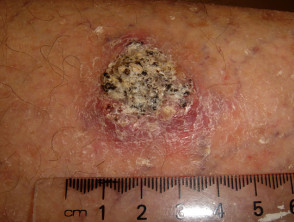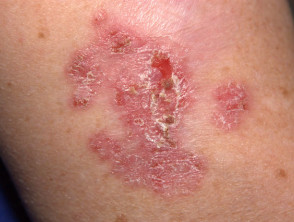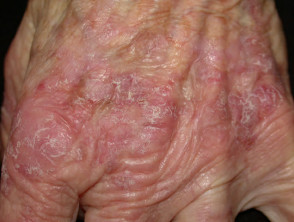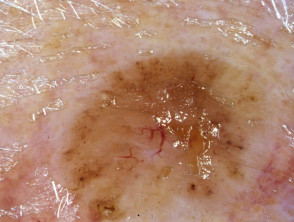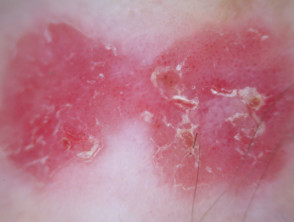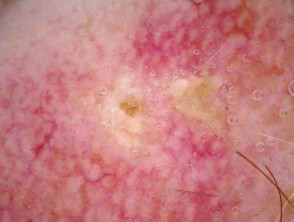What is a keratinocyte cancer?
A keratinocyte cancer is a malignant neoplasm formed from keratinocytes, either from basal cell keratinocytes or squamous cell keratinocytes — the building blocks of the epidermis.
Keratinocyte cancer
How are keratinocyte cancers classified?
Keratinocyte cancers are cancers of the skin. They are classified as:
- Basal cell carcinoma (BCC)
- Cutaneous squamous cell carcinoma (SCC)
- Intraepidermal squamous cell carcinoma (SCC in situ).
Actinic keratosis is a precursor to squamous cell carcinoma.
Who gets keratinocyte cancers?
Keratinocyte cancers are the most common form of skin cancer and the most common form of cancer in humans. They are predominantly diagnosed in older white-skinned people who have worked outdoors or who have suffered from multiple episodes of sunburn.
They are particularly prevalent in Australia and New Zealand.
Keratinocyte cancers can also rarely affect children and people with skin of colour. See basal cell carcinoma in skin of colour and squamous cell carcinoma in skin of colour.
What causes keratinocyte cancers?
Keratinocyte cancers are primarily caused by exposure to ultraviolet radiation.
Other contributing causes include:
- Genetic disorders such as xeroderma pigmentosum and basal cell naevus syndrome
- Chronic immune suppression such as drugs given to patients who have received an organ transplant
- Smoking (especially for squamous cell carcinoma).
What are the clinical features of keratinocyte cancer?
Keratinocyte cancers present as solitary, enlarging skin lesions.
They may be scaly or smooth, skin coloured or pigmented, intact or ulcerated, painless or painful.
What are the complications of keratinocyte cancer?
Keratinocyte cancers are destructive and often cause ulceration and scarring.
Neglected cutaneous squamous cell carcinoma may metastasise; metastasis is rarely due to basal cell carcinoma.
How are keratinocyte cancers diagnosed?
Keratinocyte cancers are diagnosed clinically, often with the aid of dermoscopy, and the diagnosis is confirmed histologically after skin biopsy.
Dermoscopy of keratinocyte skin cancer
How are keratinocyte cancers treated?
Primary keratinocyte cancers are mostly treated by excision biopsy. Mid-facial or difficult lesions may undergo Mohs micrographic surgery.
Superficial forms of skin cancer may also be treated by superficial surgical techniques such as curettage and cautery, by cryotherapy, and topically using 5-fluorouracil cream, imiquimod and others.
Occasionally, radiation therapy is used to treat keratinocyte cancer.
What is the outcome of keratinocyte cancer?
Nearly all keratinocyte cancers are cured by treatment. However, advanced cutaneous squamous cell carcinoma (and rarely, basal cell carcinoma) may prove ultimately fatal.
